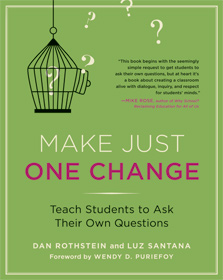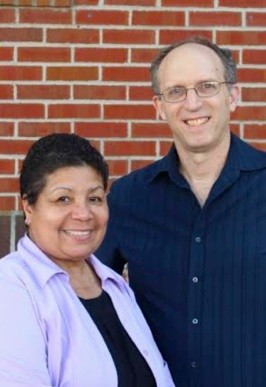We’ve been so busy that we haven’t been able to set aside the time to write. But, the stories coming in are too compelling for us not to write, so we’ll get started again. Before we start writing about them, though, a short piece in yesterday’s NY Times helped spur me back to the keyboard. The Business Section featured an interview with Tim Brown, the CEO of IDEO, an innovative design firm. The headline was:
He Prizes Questions More Than Answers
That got my attention. The critical importance of questions is too often overlooked if not dismissed. We frequently encounter skeptical comments about the importance of teaching people with limited literacy or education how to formulate their own questions. Two common ones are:
- everyone can do it, so why bother to teach it? or
- why will learning how to formulate your own questions actually make a big difference in anyone’s life?
Then, I read what Brown said and realized that he certainly understands the importance of questions:
As leaders, probably the most important role we can play is asking the right questions. But that in itself is a creative process.Those right questions aren’t just kind of lying around on the ground to be picked up.
He’s got that right. We learned that the hard way. We began our work 20 years ago in a drop-out prevention program in Lawrence, MA and parents were telling us they didn’t participate in their children’s education because they didn’t even know what to ask. We ignored that for a while until finally we heard it enough times to pay attention. So of course, we did the wrong thing and gave them a list of questions. That only created more dependency.
So, we’ve spent nearly a couple of decades figuring out the simplest way possible to help all people, even those with limited education or literacy, to learn how to formulate their own questions. We started with a 32-hour curriculum and distilled it down to a process that can be taught in ten minutes to patients in community health centers (something that medical students at CCNY’s medical school did this past summer in the Bronx and Brooklyn).
We’ve created a deceptively simple process that produces “divergent” thinking, that allows people to think in new ways, to go broad as well as deep. Our friend Stephen Quatrano describes it this way: The process allows you to organize your thinking around what you don’t know. That’s no small accomplishment. And it’s been played out in low-income communities where our strategy is being used all around the country and beyond.
Now, Brown comes along and confirms the value of asking questions, even for a highly educated person already working creatively on complex projects. … in design, he says, that’s everything, right? If you don’t ask the right questions, then you’re never going to get to the right solutions.
In different words, that’s exactly what we have heard from people with whom we have worked all around the country. Learning how to come up with their own questions not only marks major cognitive growth, but also creates a new sense of urgency, determination and confidence to take action. One mother in a homeless shelter in Kentucky who learned our strategy for coming up with her own questions said that now: I’ll do whatever it takes to get information I need to help my child.
Armed with the skill and emboldened by a sense that she can indeed take action on behalf of her child, transforms her from being passive and overwhelmed to proactive and strategic. Given the daunting challenges she faces everyday, knowing how to ask her own questions is a major step indeed on the way to being able to advocate for herself and her family.
Brown has a new book out, Change by Design: How Design Thinking Transforms Organizations and Inspires Innovation. I plan on getting it soon. He may be talking about the value of leaders asking the right questions while we focus on the need for all citizens to learn how to get to the right questions, but, still, I suspect that someone who ‘gets’ the value of asking the right questions will have some more insights to offer us.



